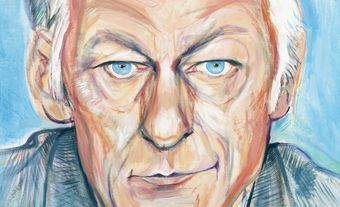Son of Daniel Massey, he propelled his father's Newcastle Foundry into a dynamic farm-implement producer by mergers, spirited sales and advertising techniques, and acquisition of patents for labour-saving American mowers, reapers and binders that transformed the productivity of Canadian agriculture (see Agricultural Implements). In 1870 he incorporated the Massey Manufacturing Co, which relocated in Toronto in 1879 and expanded significantly with the purchase of the Toronto Reaper and Mower Co, an American branch plant. Massey directed the firm's successful entry into foreign markets; it was the first North American firm of its kind to go abroad. In 1891 he merged A. Harris, Son & Co Ltd and other Canadian rivals to form Massey-Harris Co Ltd, of which he was president, 1891-96.
A stern employer but genial Methodist patriarch who regarded his business as a trust from God, he contributed to many charitable, educational and religious institutions, and erected Toronto's Massey Music Hall (see Massey Hall) and Fred Victor Mission in memory of his sons Charles Albert (1848-84) and Frederic Victor (1867-90). Massey's son Walter Edward Hart (1864-1901) was president of the firm 1896-1901 and active in advertising and sales activities. He promoted the pasteurization of milk and encouraged cultural endeavours, producing some of Canada's first staff magazines, including the literary journal Massey's Magazine, merged (1897) with the Canadian Magazine. Hart Massey's last surviving son, Chester Daniel (1850-1926), relinquished his managerial responsibilities to Massey-Harris, an increasingly complex public corporation, in 1901. He devoted himself to public service, administering Hart Massey's estate, reorganized in 1918 as the Massey Foundation, which supported numerous philanthropies and constructed HART HOUSE and Massey College at U of T.

 Share on Facebook
Share on Facebook Share on X
Share on X Share by Email
Share by Email Share on Google Classroom
Share on Google Classroom


